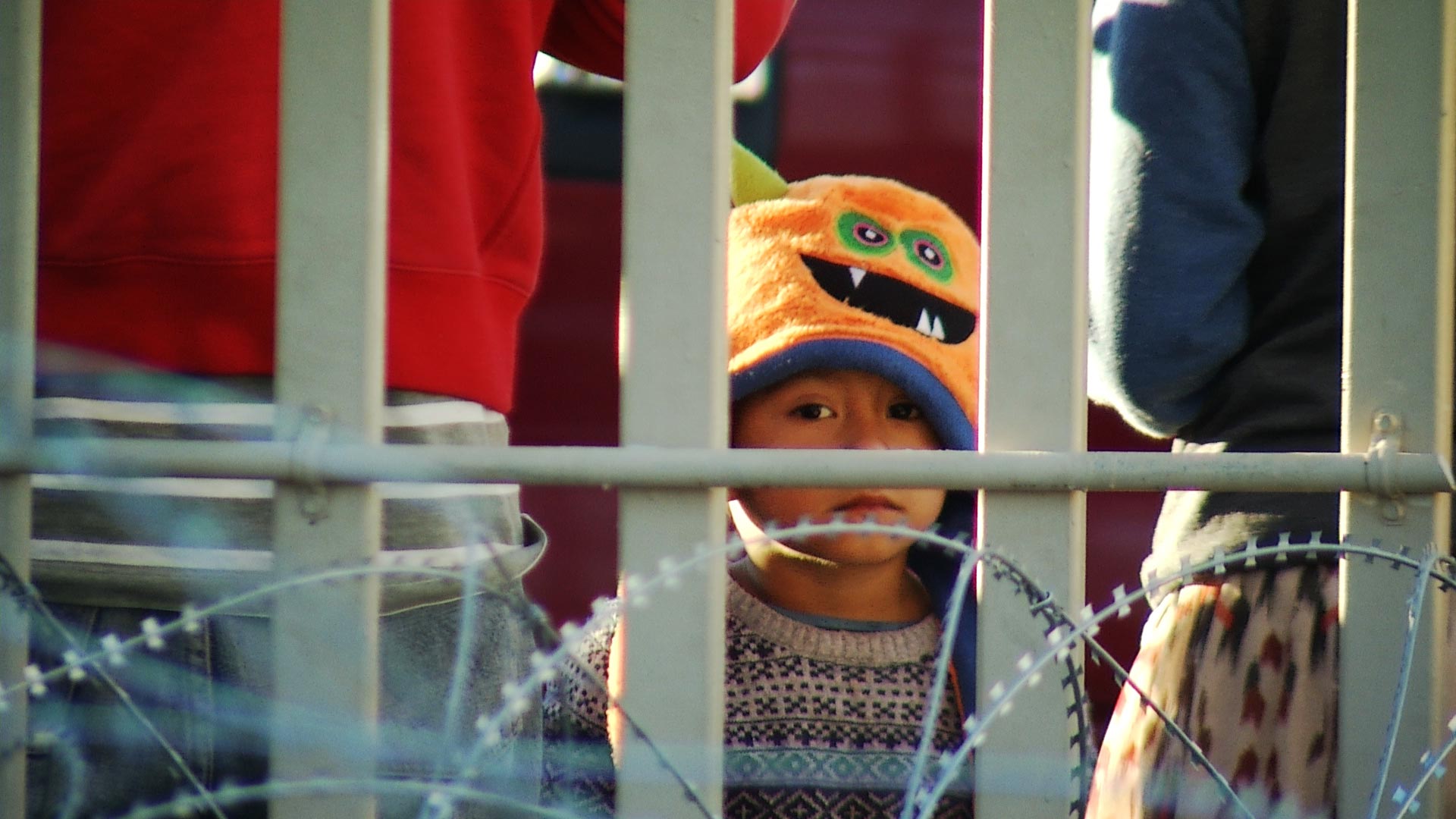 A boy in San Luis, Mexico looks through the fencing and concertina wire that separates San Luis, Mexico and San Luis, Arizona, December 2018.
A boy in San Luis, Mexico looks through the fencing and concertina wire that separates San Luis, Mexico and San Luis, Arizona, December 2018.
Immigration policies that leave migrants and asylum seekers waiting south of the border have caused a public health crisis, says a new report from the Harvard Global Health Institute and Boston College School of Social Work. The coronavirus has only added to the problem.
"At this current moment people are trying to persevere in the midst of heightened precarity," said Joanna Williams, education director for the Nogales-based migrant aid and advocacy group Kino Border Initiative, during a presentation Tuesday on the new report.
It found that migrants waiting south of the U.S.-Mexico border face overcrowded housing, violence, poor sanitation and lack of access to health care, making them particularly susceptible to communicable diseases, including like chickenpox, measles and now COVID-19. Migrants also frequently go untreated for injuries, malnutrition, chronic conditions, trauma and other mental health needs.
Report authors attribute much of the problem to a growing number of asylum seekers stuck in border communities due to U.S. immigration policies including the Migration Protection Protocols, known as the "Remain In Mexico" program, which sends asylum seekers back to Mexico while their cases proceed through U.S. courts.
Tens of thousands of asylum seekers have been sent back to Mexico as part of the program. A policy known as metering, which only allows a certain number of people to ask for asylum at the border each day, has also led to months-long waits at the border for those hoping to ask for relief from danger in their home countries. According to the report, as the number of asylum seekers waiting south of the U.S.-Mexico border increases, resources, including health care, have not kept up.
The report concludes with 15 recommendations for U.S. and Mexican policy makers, as well as migrant advocates.


By submitting your comments, you hereby give AZPM the right to post your comments and potentially use them in any other form of media operated by this institution.